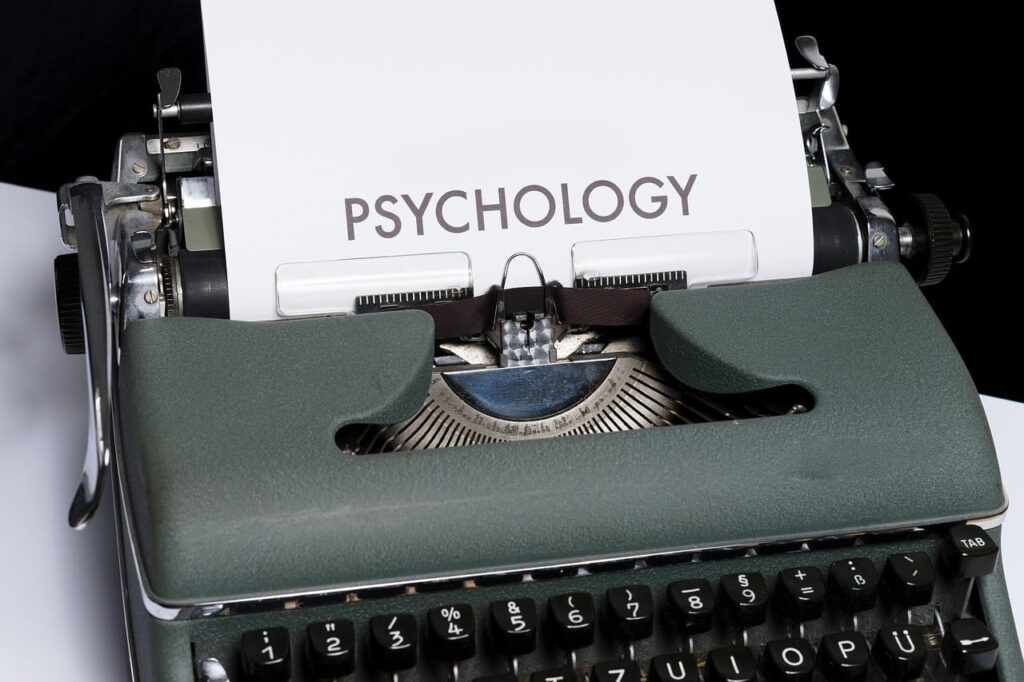You’re probably reading this because you’re thinking about taking the Psychology Extended Essay subject for your IB diploma. I’ve worked with students for a long time and can say that this is one of the most complex subjects you can pick. Is it the right one for you, though? Not only that, but is it hard?
Let’s look at this from the point of view of someone who has helped many students write good extended essays on Psychology.
What Is the Psychology Extended Essay Subject?
The IB Psychology Extended Essay subject is one of many choices within the IB Diploma Program. It falls under Group 3: Individuals and Societies. You need to look into a specific psychology question and write a 4,000-word essay showing you can think scientifically, in depth, and uniquely. From what I’ve seen, it’s a one-of-a-kind chance to work on real psychology research, which most high school students never get to do.
This essay stands out quite a bit from your usual schoolwork. Although your Internal Assessments in Psychology may include some data collection or commentary, the extended essay on this subject requires a comprehensive, independent research project. While you may not conduct your experiments, you must examine, evaluate, and provide feedback on existing psychological studies and theories pertaining to your selected topic.
A Psychology EE must be based on actual data, backed by academic sources, and shaped by clear, rational reasoning. In contrast, you can build points on personal opinion or narrative analysis for essays in subjects like literature or history. The general IB standards state that students must examine psychological ideas, theories, and methods while showing organized knowledge of the topic.
Your topic should also have something to do with psychology. In other words, you should pick a subject that fits into the biological, cognitive, or sociocultural psychology. I’ve seen students get in trouble over the years for picking ideas more related to sociology, health studies, or philosophy.
Remember, it’s not enough to just write about “how to be happy” or “why motivation matters”; you need to back it up with peer-reviewed research or psychological models. There is no self-help in it; it is about science.
Why Choose the Psychology EE Subject?
The subject you choose for your Extended Essay is a big choice that can affect your whole IB experience and even your future academic goals. Throughout the years, I have observed that students naturally interested in the human mind and behavior are drawn to the Psychology EE subject. But that’s not the only reason to think about it.
It’s Ideal for Students Interested in Human Behavior
For students who are always wondering “why,” I believe this subject is ideal. This field allows you to ask big questions and then use real psychology research to answer them, whether it’s about how habits form, why people follow group behavior, or how memory works under pressure.
You will have the freedom to look into topics like:
- Cognitive processes like attention, perception, and memory.
- Mental health topics, including anxiety, depression, or trauma.
- Social psychology issues such as obedience, conformity, or prejudice.
- Cultural influences on behavior and identity.
- Biological psychology topics — brain function and neurotransmitters.
For example, one of the students I worked with looked into how teens might become less sensitive to violence if they play dangerous video games. Another study tried to find out if practicing mindfulness could help with test stress in a measured way. They both picked narrow, research-based questions that were interesting to them and also met the standards of the IB.

The important thing is to pick something you want to learn about. Finding a topic that interests you will help you stay focused during the essay writing process.
It Works Well for Students Strong in Research and Critical Thinking
The IB Psychology Extended Essay subject is best for students who are critical, well-organized, and interested, in my experience. It’s not the kind of homework where you can just sum up what you read and be done with it. Instead, you need to explain why some research methods were better, compare study plans, and make sense of the results.
Based on common IB criteria, effective essays should:
- Demonstrate comprehension of psychological theories and concepts.
- Incorporate pertinent and peer-reviewed studies.
- Provide a well-organized examination that backs your research inquiry.
- Assess the advantages and drawbacks of the research you mention.
It means that you will be taking part in case studies, scientific studies, and research based on observations. If you want to do well, you must read carefully and question the facts. It is a bit like science writing in some ways, but there is more room for conversation and opinion.
It does take a lot of research, but the result is worth it. You’ll learn real skills that will prepare you for writing at the college level, especially in neuroscience, education, business, and even law. You will do it while answering questions that are interesting to you.
Who Should Not Choose Psychology as Their EE Subject?
Let’s be honest: not everyone can write in the way required for this subject. As a rule, writings on Psychology are organized, formal, and very detailed, unlike papers on other subjects, where you can be creative or think about your experience. You must also use APA style, including uniform headers, in-text sources, and reference lists.
I think that the Psychology EE is hard for students who really like creative writing, personal stories, or points with a lot of loose connections. The point is to use evidence to build an argument. Any statement must be backed up by facts or psychological theory. Individual thoughts don’t matter much unless directly related to the research question.
Another point is that the IB Extended Essay in the Psychology subject calls for good research practices. To do that, you must know how to look for peer-reviewed pieces, spot reliable sources, and understand complicated study designs. If your question concerns scientific psychology, you’ll need to learn how to read tables, sample numbers, and control groups.
I’ve seen that students who don’t realize how long this kind of essay takes often have the most trouble. Conducting can even take weeks. You need to be self-disciplined to work on a long-term job that includes planning, writing, reviewing, and using feedback.
The time requirements for this subject can become a source of stress if you already have a lot on your plate with IA tasks, Theory of Knowledge work, and other assignments. I’ve seen students try to write their Psychology EE in just a few days, but the organization and analysis were poor, and they got bad grades.
Don’t let the stress of the IB curriculum hold you back.
Are you struggling to come up with topic suggestions for your IB Extended Essay?
Our experienced writers can help you choose the perfect topic and assist you with any assignment.
You can buy an Extended Essay tailored to your specific subject and requirements.
Our experienced IB writers are always ready to help.

Is the IB Psychology Extended Essay Subject Hard?
Students really want to know if they can handle the Psychology subject on top of everything else IB throws at them, so let’s be honest about that. In my opinion, the hard part about writing an essay is not the topic itself, but how much thought, planning, and evaluation it requires.
The Challenge of Balancing Theory and Evidence
I don’t think the topic makes this subject hard; I think it’s the details. It’s not just a study about “stress” or “memory.” You need to take a psychology theory, find a connection between it and research from the real world, and then closely analyze it. So you’ll have to read original academic studies, list their flaws, and then explain how they back or refute your argument.
So, let’s say you want to look into the connection between childhood attachment styles and adult romantic relationships. You can’t just sum up Bowlby’s idea and be done with it. You need to:
- Find new studies reviewed by experts and test the connection in adults.
- Check out the different ways that experts have measured bond styles.
- Look at the studies’ group numbers, methods, and their validity.
- Talk about how cultural or gender issues may have affected the results.
Doing this research takes time, care, and a good grasp of psychological ideas. Some students thought the topic sounded “easy” at first, but they got stuck when they saw how much reading, comparison, and synthesis there was.
Another thing that students find surprising is that you should keep a formal, strict tone throughout the whole thing. You can find an interesting story or personal comment, but it won’t be valid unless it’s based on research. The standard is high, and there isn’t much room for writing that isn’t clear or backed up.
Difficulty Depends on Your Strengths
The good news is now here. Whether or not this subject seems complicated to you rests on how well you do in school and how you usually work. If you’re the type of student who likes organized chores, reading about psychology, and writing formal essays, then this subject might seem pretty normal.
If you liked writing Internal Assessments for IB Psychology or did well on TOK essays, you probably have the skills to do this. That being said, if you already know how to look at studies and plan an essay, you might find the process easier to handle than students just starting to learn these skills.
On the other hand, the process can be annoying if writing long papers feels like a job or if you get easily stressed out by multiple changes and thorough comments from your supervisor. A few of the students I worked with had great ideas, but couldn’t keep to a rigid schedule. In those situations, the most challenging part wasn’t the material, but how to organize it.
That’s why I always tell my students that success in the Psychology EE subject requires more than just what they already know. You must show you can plan, research, write, and edit well. And don’t forget that our IB Writing Service can assist you with any Extended Essay subject.
Nora Spinster

